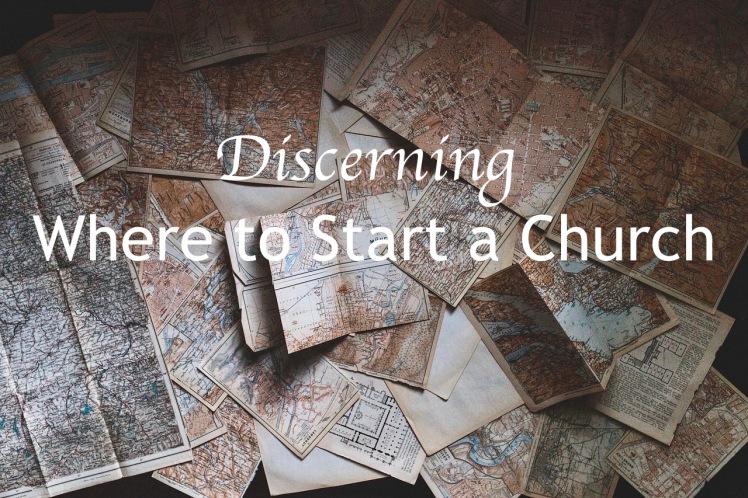
Building Hope in the City – Cincinnati is looking for a location to start an urban church. When Building Hope started the process, we sat down to talk about potential locations. Part of the discussion was about where to start the church.
Here are the five questions I shared with Building Hope about discerning where to plant.
How specific are your prayers about where to start a new church?
God engages in His mission through His people, especially through congregations. So asking God for guidance about where to start a congregation is the top priority. Far too often prayers about starting a new congregation are too general. Get specific. Get very specific. Take a page from the persistent widow in Jesus’ parable (Luke chapter 18). Be relentless in petitioning God to reveal where to start the church.
Has God already raised up a local church planter?
If the answer is yes, then you plant wherever the church planter lives and works. As a resident, the planter understands the local culture and beliefs about God. The planter already knows leaders for the launch team. The planter already has a network of relationships to connect people and resources to the church. Today, founders of churches are often lay leaders. They go through distance education for ordination once their leadership is proven.
Do you know a group of Christians with a heart for God’s mission living in the same neighborhood or community?
If so, then find out whether they are willing to transition from church members to community missionaries. Such mission teams are usually made of people from the same church or denomination, so they have a number of shared beliefs and values. Furthermore, they understand the local culture. Such a team has a network of local relationships even larger than a resident church planter. If they are willing to love their community, they have the potential to start a new church.
Is there an underserved group of people in the area?
There are all sorts of communities of people who are not served with the Gospel. Apartment complexes filled with recent immigrants. Urban neighborhoods void of churches because their congregations fled to the suburbs. Rural villages where church buildings stand vacant. New suburbs with residents waiting to see who will take the risk of starting a new church as they build new homes. If there is a large group of people with a common bond and shared experience, you’ve got the potential for a church start.
Is there a local church or group already preparing to start a new church?
This model fit Building Hope especially well since the organization’s strategy is to partner with local churches. If another church has already done the hard work of discerning where to start a new church, maybe that is where you are supposed to plant a church. Church planting partnerships bring more prayer, expertise and resources to a church start. The key is partnering with a church that shares your beliefs and philosophy of ministry.
If you would like to explore starting a new church, shoot me a message. In the meantime, share your thoughts about discerning where to start a church in the comments.

This is a good list. I also think you go where God is moving. If there is a growing attractional church people tend to stay away from it. The opposite is true. God is bringing people and not everyone is going to like it there or connect. So by being close you become the next option. Its a way to leverage what God is doing. I also think the opposite is true. If there is an area with several established churches a new church plant is often needed to reach others and bring back life in all the churches. I have seen this over and over in MI.
One of the questions we asked that determined where to plant was, where do we want to die at? Do we love this community enough to die for it, buy grave sites.
LikeLike
Appreciate the insights, Jason. Thanks for the additional questions.
LikeLike